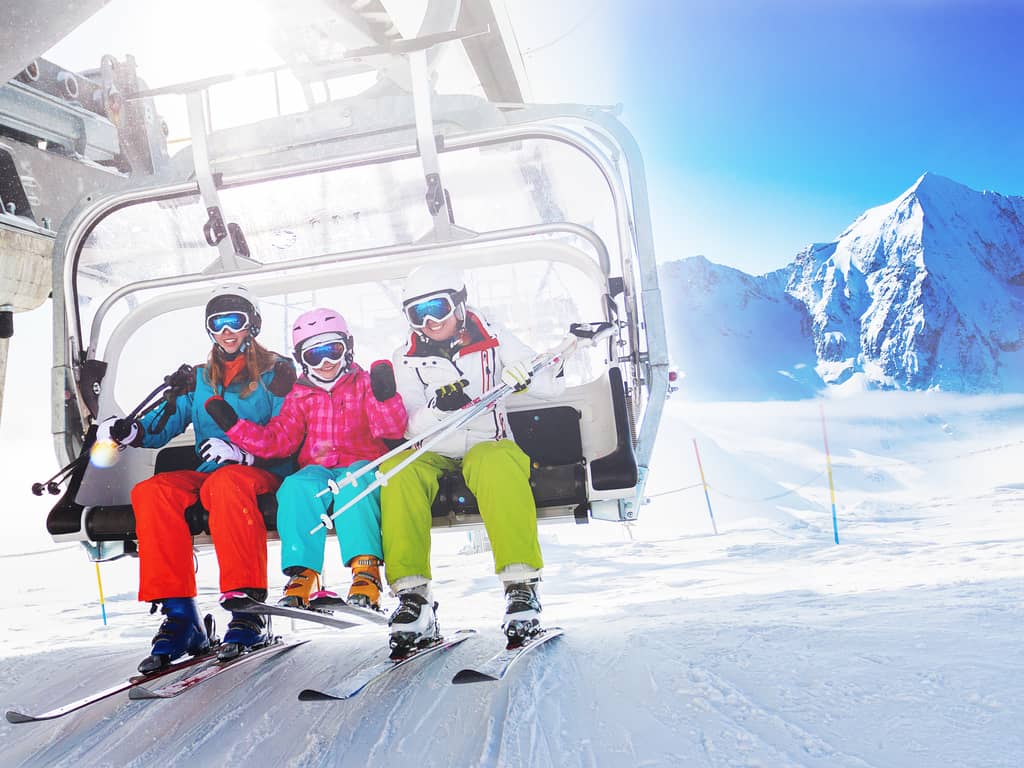Whether you are planning a ski trip or you live near a snow-covered mountain, you can always get some exercise during the cold winter months with skiing. All ages from beginner to advanced can benefit from a day out on the slopes. Skiing can be tons of fun and it is also an excellent workout for the whole body. As well as considered good for both the body and mind. Skiing is a wonderful outdoor workout that improves your physical fitness and endurance. It is also a form of interval training as you push yourself in bursts of high activity punctuated by breaks while riding the ski-lift. Find out skiing can improve overall health.
Not only does skiing have excellent exercise benefits, but your also breathing in the fresh mountain air and spending the entire day outside which is great for your mental health. Skiing works all the core muscle groups of your body. It helps you to improve your balance, posture and increase body strength. It is the perfect way to exercise during the winter. Swap the crowded gym for an hour of flying down an open mountain.

1. Skiing improves strength, flexibility, and balance, and it is suitable for almost everyone.
Just like any kind of aerobic activity, you will be engaging many of your muscles while you ski! The movements you make while skiing will make your body feel like you’ve done about a thousand squat exercises. You’ll get a good workout in your thighs, hamstrings, quads, and glutes. Plus, you’ll be having so much fun you won’t even realize how hard you ware working out! Here are just some of the health benefits attributed to skiing:
- An excellent cardiovascular workout
- Improves circulation
- Exercises all the major muscle groups
- Burns a lot of calories and helps to get rid of body fat
- Strengthens the leg muscles
- Improves general mobility
- Improves coordination and balance.
